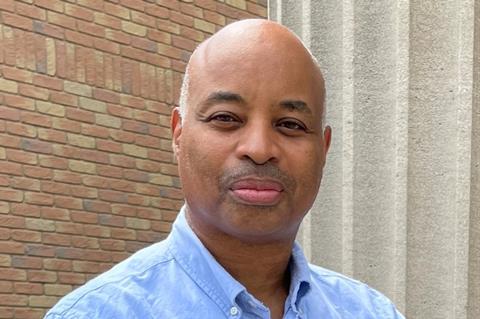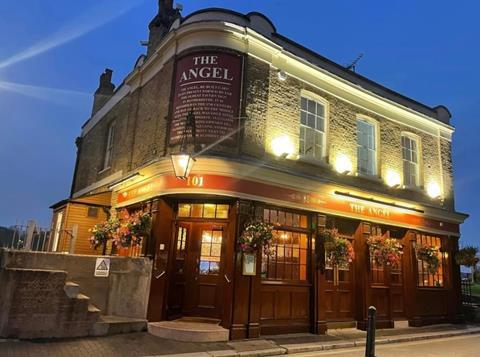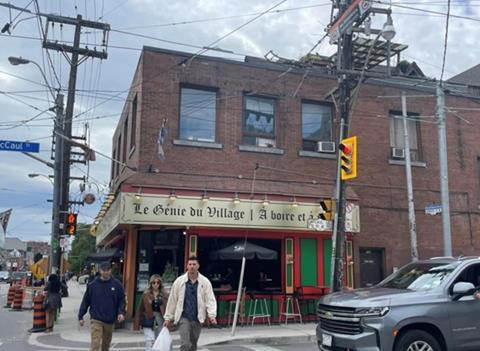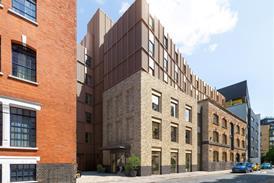With British pubs in decline, Dorian Moore asks whether their role as ‘third spaces’ could help save them

Having been in the UK recently, my thoughts turned once again to pubs. I was taken aback when I read an article in the Guardian proclaiming the imminent demise of the British pub - something the newspaper attributed to a range of issues, from the impact of covid, to the fallout from Brexit. Another article on BNN Bloomberg pointed out that according to the British Beer and Pub Association the number of pubs dropped from 60,800 in 2000 to 45,800 in 2022.
The pandemic changed the habits of customers, with more people becoming used to staying in. And rising energy costs have also had an impact.
Many pubs are older structures that don’t meet modern energy efficiency standards. Anyone running a historic pub is also a custodian of a piece of architectural heritage, with all the additional responsibilites that entails.
Frosted single-glazed windows might be authentic, but they’re not great thermal barriers. This increases the overheads for heating the spaces and hits the bottom line of these establishments. It’s another one of the things that we don’t always consider when we look at the problems that pubs are facing.
Despite these challenges, it is incredible that so many remain as community hubs that can also foster creative work and interactions. Quite often these kinds of places are taken for granted, but once you start to understand their role in a community, you begin to appreciate their real value.
The function of a pub can be difficult to explain to a non-Brit. As the Bloomburg article points out: “It has beer, but isn’t a bar, it serves food, but isn’t a restaurant.
“Some have live music, many have games, others brew their own beer. You can drink there all night and bring your children and dogs, too. If their role can be summarised at all, it’s as a community centre—the ‘third place’ people go to outside of work and home.”
For me, pubs lend themselves to a whole range of different activities
I think it’s interesting that in the past pubs were the place where a lot of creatives, from writers to architects to designers, hung out at to get their creative juices flowing and to get work done.
These places can sometimes be raucous, sometimes quiet and contemplative, and sometimes a weird thing in between. On any given night you could stumble onto a socio-political debate, sports discussion, or trivia night. It doesn’t matter.
So if the British neighbourhood pub is an important ‘third space’ that is often central to successful urban living, how can it be saved? Perhaps, with more people working from or close to home, the role of the pub has the opportunity to evolve again, to serve communities in new ways.
For me, pubs lend themselves to a whole range of different activities - from reflection to writing and sketching. Experiencing how pubs play this multipurpose role has left me more convinced than ever that the British pub has a bright future.

How well does the pub work outside Britain?
Seeing how pubs worked as neighbourhood linchpins in London also led me to consider how they can be adapted for other cultures, in various neighbourhood settings.
A pub’s appeal is the idea that it can be a place for everyone. In North America this role has often been fulfilled by the coffee shop or the bar, but neither has quite the same community function.

One of my favourite watering holes in Canada is The Village Genius in Toronto. It’s the closest I’ve come to finding that pub experience. With its roller shutters, it may not resemble a London pub, but it has the same welcoming atmosphere, and is somewhere I feel comfortable both working and socialising.
If Canadian pubs can become community centres for discourse and camaraderie, and not just places for drunken revelry, then there exists the opportunity for them to build off of the country’s historic connections with Britain, while simultaneously forging a new path within Canadian hearts and minds.
Canada does have places that offer the kind of atmosphere and vibe you experience in a traditional pub. These places are out there. All we need to do is identify them, nurture them, and preserve them.
So, the British pub may have to transform in order to remain relevant today, but it still has useful lessons for people interested in building successful communities in the UK and beyond.
The key to its survival is to transform without losing the character that so well defines it. There will be many well-wishers from this side of the Atlantic hoping to see the traditional British pub not just survive, but thrive.
Postscript
Dorian Moore is an architect, urban designer, and a partner at Archive Design Studio in Detroit. He is a Fellow of the Canadian Urban Design Institute and has taught architecture and urbanism at the University of Windsor, University of Detroit-Mercy, Lawrence Technological University, and Wayne State University.
















No comments yet